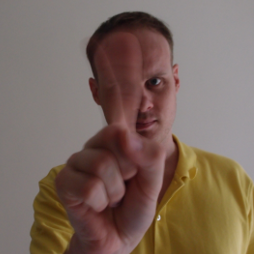
Unfortunately, sometimes you have to say “No”
Now that I have the honor and pleasure of being a father, I have to admit, that becoming one has dramatically changed my life. One of the things that changed are the kind of things you talk about with friends. Now suddenly the main topic has become the baby: how old is he now, does he sleep during the night, how heavy is he, etc. And sometimes the future is discussed: which school will you choose (or have you chosen) or in which language(s) will you raise your son? With a Dutch father, Taiwanese mother and part Korean family in a country that speaks Cantonese and English, that is a difficult topic. Some time ago I talked to my cousin who has a son that is a few years older. His son is a naughty little guy, very typical for his age. Somehow we got to the topic of where correcting transforms into coaching.
During their lives we want our children to extend their boundaries and grow beyond us. At the same time we teach our children the boundaries that should not be broken. “No dessert before you finish your plate.” I’m a huge fan of “Why?” questions and believe that asking them should be encouraged at all times. And I sincerely hope I will be able to cope with the endless stream of such questions when it comes. However, as a parent I will probably also need to limit the freedoms my son will try to obtain in the coming years. Naughty is good, but there are lines that should not be crossed. “Why?” questions should be postponed until the morning; 3.00h “Why? questions like “Why is it dark at night?” are not allowed. At least not at 3.00h in the morning. At the same time he should not speak with his mouth full. And yeah, I will also express my disapproval in case he would steal things. Those are all examples of correction. Although I hope I will never have to correct him for stealing.
Later in life, when moral boundaries and decorum become more firmly established, advice and support will gradually replace reprimands and punishment. Correcting becomes coaching. My cousin and me estimated that 12 years old would be a nice age for coaching to become more dominant than correcting, although this might be wishful thinking…
However, what I discovered while I was reconsidering the transition from correcting to coaching, is that in the past few months (the first few months of my son’s life) I did not correct my son. I rather coached him to explore his surroundings, helping him stand on his feet, letting him taste new kinds of food and to make new kinds of sounds. I coached him in extending his comfort zone and his boundaries. And yes, I have to admit, I now start having to prevent him to crawl into the kitchen when we’re cooking and I show my disapproval when he screams loudly. I always try to explain why, but I guess with 9 months he’s a bit too young to understand most of my explanations.
Somehow coaching turns into correcting turns into coaching. It’s part of the cycle of life almost. Although coaching is generally better than correcting, of course. I’m impatiently waiting for the first Why? question to come!